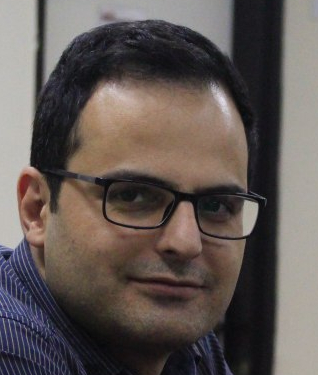As a PhD student at the Center For Complex Networks & Social Data Science (CCNSD) of SBU, I work on Statistical Physics of Complex Networks.

Contact/Follow me:
- Gmail: amir.kargaran25
- Sbu.ac.ir: a_kargaran
- LinkedIn: amir-kargaran
- Address: Room A2, Department of Physics, SBU
- Tel : (+98)2129902796
FIELDS OF INTEREST
Statistical Physics, Complex Systems, Critical Phenomena, Computational physics
M.Sc. Thesis
Study of Net Current of Particles in 2D Pulsated Potential Landscape
Description
In systems possessing spatial or dynamical symmetry breaking, Brownian motion combined with unbiased external input signals, deterministic and random alike, can assist directed motion of particles at nanoscale. “Brownian motors” are devices by which thermally or extrinsically activated processes are controlled and used to generate directed motion in space. Rectification devices involving asymmetric substrates are termed ratchets and if the potential periodically turns on and off in time, it is called “Pulsated Ratchet.“ In this research net current of particles in 2D pulsated asymmetric potential landscapes is surveyed theoretically and by Monte Carlo method simulation.
B.Sc. Thesis
Local model of a scientific collaboration in physics network compared with the global model
Description
We have constructed a collaboration network for physicists based in Iran working in different disciplines. By discussing properties like collaborators per author, shortest path, betweenness, and the concept of power in networks for this local model, and comparing with the global model, we understand how a developing country in the Middle East is contributing to the scientific growth in the world statistically. In this comparison, we found some properties of the local model whichwere not in accordance with the standard global society of science,which should be considered in developingthe future policies. Our resultsshow significant differences in factors like the degree and the diameterof the networks. Even though the diversity of disciplines is lowin contrast with the rest of the world according to the diameterof networks , people are reluctant to collaborate as their degree shows.